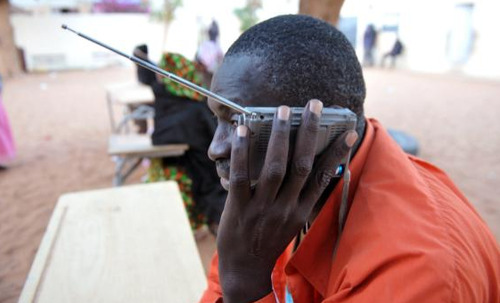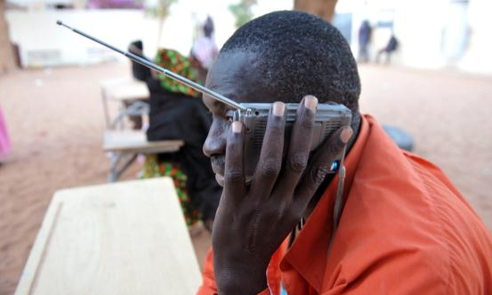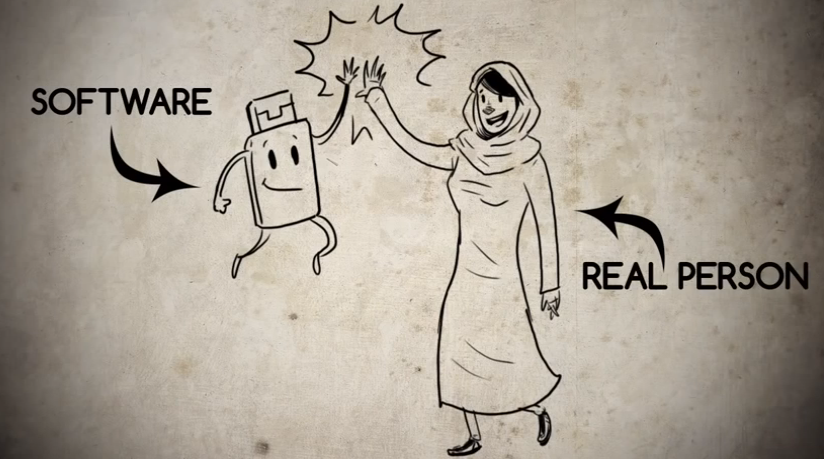
An article about how radio technologies are mashed up with SMS tech to allow community members to text into radio programs, to talk back and participate in discussions. Instead of having to go through expensive voice calls, they can use SMS to send in messages or participate in surveys.
FrontlineSMS: Giving Radio Listeners a Voice
Radio represents the dominant media source for many people on the African continent and is an essential outreach tool, particularly for rural communities. However, this communication channel remains too often one way: listeners are limited in their abilities to share information or communicate their opinions on public affairs and community issues.
To give radio listeners a stronger voice within their communities and beyond, FrontlineSMS was initiated in 2005 by a UK non-profit organisation. FrontlineSMS is a programme that enables community radio stations to interact dynamically with their audiences. It is an easy-to-use, free computer programme that manages text messages during radio programming, without requiring Internet access.
By connecting a GSM modem to a radio station’s computer, FrontlineSMS routes text messages to a computer screen rather than a mobile phone, making the task of presenters easier. In addition, it automatically saves all text messages and sender contact information, thereby providing radio station staff with the ability to send targeted messages to key demographics, to conduct polls, to send out information, and, overall, to increase the quality of their interaction with the communities they aim to serve.
Via FrontlineSMS, radio stations have been able to communicate directly with their listeners, enabling them to contribute their opinions, react to current affairs as well as submit news stories. As a result, FrontlineSMS has contributed to increasing listeners’ interaction with radio programmes and has stimulated debate on issues such as health, governance and the environment.
Joseph Mazizi, from Radio Mudzi Wathu, a community radio station in Malawi, explains: “At Radio Mudzi Wathu, we use FrontlineSMS for receiving questions, comments and ideas from the community on issues of health and environment. After receiving questions through FrontlineSMS, we take them to relevant authorities or experts in different fields, and the response is sent to the one who asked the question.”
In Zambia, Developing Radio Partners, a non-profit organisation that helps broadcasters build radio stations that strengthen communities, introduced FrontlineSMS to radio stations in rural areas throughout the country, with the aim to inform and engage citizens on climate change. As a result, FrontlineSMS contributed to expand the stations’ interaction with listeners and to develop a constructive dialogue between stations and communities around natural resource issues, focusing on potential solutions to local environmental challenges. The audiences seized the opportunities offered through FrontlineSMS to interact, ask questions, and make suggestions, providing useful guidance for reporters.
Beyond radio stations, FrontlineSMS has also been used by various groups to promote peace and economic development. The technology enabled a team of Nigerian volunteers, equipped with mobile phones, to monitor the 2007 Nigerian Presidential elections, and has contributed to ensure market transparency in Indonesia by distributing coffee prices from five large buyers to about 150 farmers.
The service is free and available to any interested radio station to integrate into their programming. For more information on FrontlineSMS, visit the website at frontlinesms.com



